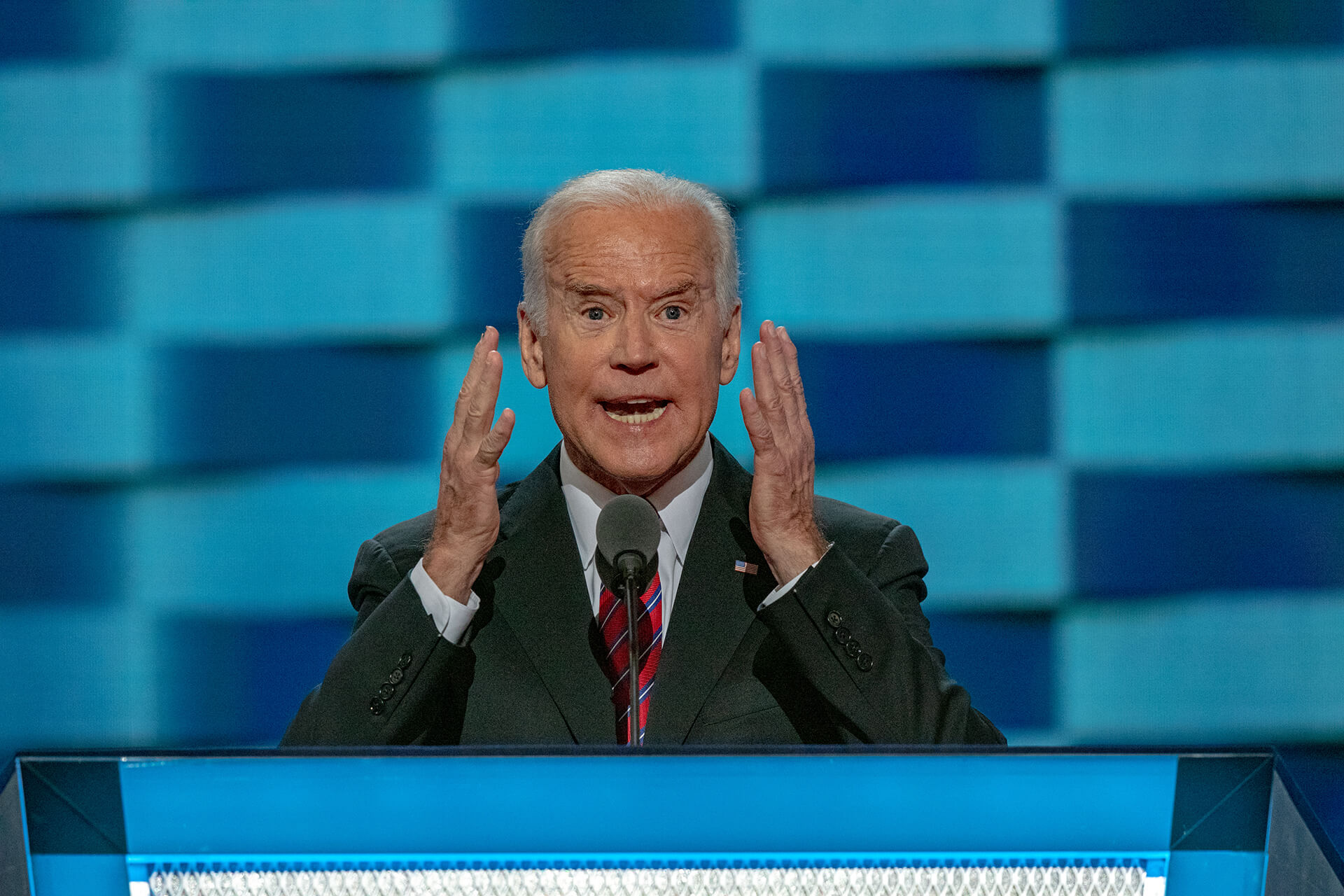In his 2020 presidential campaign Joe Biden allowed himself the luxury of breaking with a long tradition of intimate friendship with Saudi Arabia when he promised to turn Saudi Crown Prince Mohammed Bin Salman (MBS) into a “pariah” on the international stage. It was the future president’s way of advertising his moral fiber by condemning the man the CIA accused of murdering journalist Jamal Khashoggi. It also enabled him to differentiate himself from his clearly immoral predecessor, Donald Trump, whose policies and most dubious friendships he promised to overturn.
Though actively encouraged – or at least enthusiastically predicted – by Biden’s State Department, the Russian invasion of Ukraine had the inevitable, embarrassing effect of upsetting the global oil market. Prices at the pump in the US began climbing vertiginously upwards. MBS, the best friend of Trump’s corrupt son-in-law Jared Kushner, proved deaf to Washington’s entreaties to increase production to relieve the pressure on prices.
Biden’s dilemma with rising prices at the pump was compounded by his intention, displeasing to the Saudis, to return to the Iran nuclear deal from which Trump had withdrawn. His latest response to the crisis or degraded relations with the traditional Saudi ally appears to be as surprising as many other turnarounds: a return to the totally discredited Trump-Kushner “deal of the century” touted to solve the perennial Israeli-Palestinian conflict.
Trump’s Farcical “Vision for Peace” in the Middle East
“The Biden administration,” Axios reported last week, “has been quietly mediating among Saudi Arabia, Israel and Egypt on negotiations that, if successful, could be a first step on the road to the normalization of relations between Saudi Arabia and Israel.”
In diplomatic parlance, quietly means conducted in a way that, even if leaked, the public may not take notice. Normalization is a little trickier, providing the Devil’s Dictionary entry of this week.
Today’s Weekly Devil’s Dictionary definition:
Normalization:
In diplomacy, an arrangement ensuring that the interests of the most powerful and influential will be defined as a norm that everyone – including the victims of such arrangements – must respect, if not honor.
Contextual note
Quoted by The Intercept, Sarah Leah Whitson, executive director of Democracy in the Arab World Now, clarifies the meaning of normalization in this context. “Normalization? What’s that looking like? An apartheid government signing a deal with unelected tyrants in the region? What kind of normal is that?”
This raises a series of other questions for President Joe Biden and the Democrats. How “normalized” can things get in the Middle East under Biden before voters at home accuse him of betraying his own “moral stance” regarding the murder of journalist Jamal Khashoggi? How will this affect whatever progress Biden’s team hopes to make with the Iran deal, which is ongoing but appears seriously stalled? Finally, what effect will the knowledge of the expected normalization have on the Palestinian question itself? There seem to be a few contradictions that will someday have to be resolved.
Trita Parsi, executive vice president of the Quincy Institute for Responsible Statecraft, explained to The Intercept that America’s role as a security partner in the process will have the effect of incentivizing America’s partners “to pursue reckless policies with the impression that the United States will fix it for them at the end of the day.” This has become a recognizable pattern with increasingly disastrous direct or indirect consequences, from Vietnam to Ukraine.
All this highlights a serious turning point in geopolitics. For decades the “Pax Americana” was considered an inviolable norm, the key to normality across much of the face of the globe. The implicit role of the US as the benevolent overseer of the security – not just of its allies but of entire regions – has increasingly become the object of explicit critique. The interests and actions of the US were long considered synonymous with the famous “rule of law” that held the world together financially, commercially and militarily.
It could be that the strongest sign of a declining empire – and a calling into question of the meaning of a particular “rule of law” – is precisely the shift from implicit, automatic acceptance to explicit critique and indistinct rumblings of discontent. Anything that is implicitly accepted by a majority of nations becomes the standard by which normalization of relationships will be achieved.
When implicit acceptance becomes fragile, the norms themselves may shift. Norms, after all, are fundamentally pragmatic and have no inherently positive moral status. They are defined statistically as practices that are so common they become features of the behavioral landscape. Once a practice is accepted, it may be disapproved by significant minorities, but it cannot be seriously contested. That is why diplomacy more often than not results in a fait accompli. That is also why private gun ownership in the US is considered an inviolable right. It’s a right that produces multiple and increasingly frequent wrongs.
Historical note
The idea behind normalization has always been semantically related to the reduction of tensions. In some people’s minds it is associated with the obtention of peace. But normalization describes a process of moving towards a goal, whereas peace describes a stable status, or the goal itself. As Trita Parsi explains, the eventual normalization now being negotiated “reduces tensions between Saudi and Israel while cementing enmity with Iran. That is not a peace agreement.”
The history of the word normalization reveals something about the role the idea has taken on in the modern world. It is a distinctly modern term. At the Treaty of Westphalia in 1648 that ended Europe’s horrific Thirty Years’ War pitting Protestant and Catholic polities against one another, no one would have thought of the solution as normalization. At the time, no ideal existed that people might be tempted to call “normal.” Westphalia nevertheless marks the moment the idea of the nation state began to emerge as the norm for political organization.
The word normalization first appeared in written English in the middle of the 19th century as a scientific term. According to Merriam-Webster it was only following the First World War “that the words normalize and normalization were used to refer to the act of achieving political stability between two nations.” It is also the moment, in 1920, when the future president Warren G Harding produced his campaign slogan – “Return to Normalcy” – coining a word many still considered barbaric.
For all its faults, Harding’s idea of normalcy expresses a truly modern concept, an unstated ideal associated with the emerging consumer society. Normal life consists not of soldiers going to war, but of average Joes competing for a job that enables them to work for a corporation where they produce and, even more importantly, consume. Normal human beings shouldn’t even think about politics – though they should be prepared for war if their nation decides to go to war. In other words, between wars, there really should be something called normalcy.
The contrast between normalcy and war thus became a binary constant in Americans’ thinking. This was a moment in history in which people began to think that war might not be a “normal” occurrence, whereas in the European tradition dating from feudal times, war was the usual form of competition. It is hardly coincidental that World War I was the first major war in which a wide variety of powerfully efficient technologies became the “norm” for weaponry and in which civilian populations were suddenly affected in novel ways and on more massive scales than in the past.
The First World War was quickly given the misnomer of “the war to end all wars” by its survivors. Two decades later, a bigger war to end all wars occurred. And though we are still awaiting the possibility of a third world war, all kinds of wars have been conducted since the last world war. Normalizing has become a lost art to the extent that peace between ideological or cultural adversaries now depends largely on trade relations that are too costly to call into question rather than the existence of a peace-enforcing authority.
But perhaps fond memories of how the original Cold War correlated with a phase of unrivaled prosperity for the consumer society have left their imprint on decision-makers inside the Beltway. Despite nearly provoking a nuclear conflagration on at least two occasions the first time around, they appear tempted to have a go at a 21st century Cold War, convinced as they seem to be that what made the American empire then can save it from its precipitous decline today. They may see that as just another attempt at normalization.
*[In the age of Oscar Wilde and Mark Twain, another American wit, the journalist Ambrose Bierce produced a series of satirical definitions of commonly used terms, throwing light on their hidden meanings in real discourse. Bierce eventually collected and published them as a book, The Devil’s Dictionary, in 1911. We have shamelessly appropriated his title in the interest of continuing his wholesome pedagogical effort to enlighten generations of readers of the news. Read more of Fair Observer Devil’s Dictionary.]
The views expressed in this article are the author’s own and do not necessarily reflect Fair Observer’s editorial policy.
Support Fair Observer
We rely on your support for our independence, diversity and quality.
For more than 10 years, Fair Observer has been free, fair and independent. No billionaire owns us, no advertisers control us. We are a reader-supported nonprofit. Unlike many other publications, we keep our content free for readers regardless of where they live or whether they can afford to pay. We have no paywalls and no ads.
In the post-truth era of fake news, echo chambers and filter bubbles, we publish a plurality of perspectives from around the world. Anyone can publish with us, but everyone goes through a rigorous editorial process. So, you get fact-checked, well-reasoned content instead of noise.
We publish 2,500+ voices from 90+ countries. We also conduct education and training programs
on subjects ranging from digital media and journalism to writing and critical thinking. This
doesn’t come cheap. Servers, editors, trainers and web developers cost
money.
Please consider supporting us on a regular basis as a recurring donor or a
sustaining member.
Will you support FO’s journalism?
We rely on your support for our independence, diversity and quality.







Comment